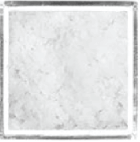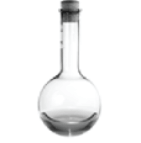Next Topic
Select SDGs to find out how we are taking action in support of the UN Substinable Development Goals
2022 ISRAEL CHEMICALS LTD. | ALL RIGHTS RESERVED






The extraction of minerals begins with an evaporation process in the southern shallow basin of the Dead Sea, which is facilitated by the hot, dry climate of the region. ICL Dead Sea’s extraction and production operation spans across 150 km2 in the southern basin of the Dead Sea.
Production plants: 9
Area of facilities: 180 hectares
Employees: 1,500, 24/7, 365 days a year
ICL Dead Sea Works (DSW) produces Potash fertilizers from Dead Sea minerals. Some of DSW’s Potash is a pure natural product with no chemical additives. Minerals extracted from the Dead Sea are dried and processed for shipment. These natural minerals are used as fertilizer in agriculture which, in turn, enhances food security.
The concession granted to DSW runs through March 31, 2030 and gives ICL priority for a new concession following its expiration, should the Israeli government wish to offer a new concession.
Until recently, the border with Jordan, in the region of the Dead Sea, was unprotected and lacked an efficient obstacle to prevent crossing the river from both of its sides. As such, the area was prone to trouble. For years, many intruders exploited the situation, mainly for criminal activity and contraband or to find work. The area is also not safe due to existence of land mines. The IDF contacted ICL about the possibility of erecting a salt wall opposite the border with Jordan.
A salt wall would make efficient use of surplus salt that is piled in the area, which is a by-product of ICL’s production process. It would act as an obstacle that would contribute to security needs in this region. Beyond the important security benefit, the project will facilitate significant savings in the transportation of the salt by-product. The salt wall, to be located just a few kilometers from the site, will help deal with the large quantity of salt that has accumulated in the area – more than a million cubic-meters, which, currently, must be transported to more distant storage sites. The salt wall will form a natural and innovative engineering obstacle, contributing to Israel’s security in an area that will suffer no major environmental impact and will not be visible from the nearby hotels area or road (number 90). The wall will be about 3 meters high on the Israeli side (above the current level). Once the wall is completed, it will extend for 36 kilometers in the area between Neot HaKikar, south of the Dead Sea, and the ponds end. The wall will make it difficult for intruders to cross the border between Jordan and Israel in the Dead Sea Works region.
The site's engineering staff and the Israeli Defense Forces (IDF) staff are supervising the project, and the Nature and Parks Authority will approve every stage of the it, in order to prevent damage to nature – fauna and flora, in the region.
ICL Dead Sea site personnel hope that the project is paving the way to additional green projects in cooperation with the IDF, to provide increased protection in the region.
Read More
